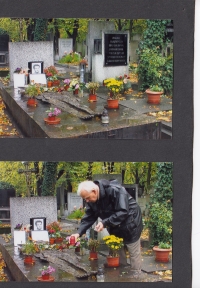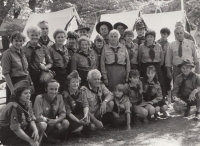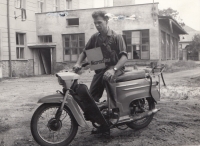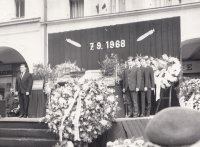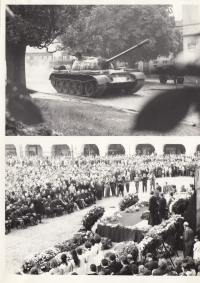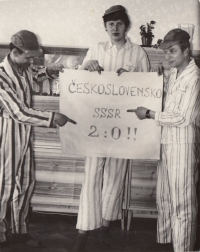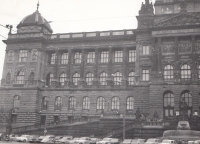After the invasion started, I took my camera and went outside

Download image
Karel Pokorný was born on 30 December 1933 in Jičín. Like his grandfather, Václav Drahoňovský, who died in a Nazi prison during the war, Karel Pokorný joined the Sokol movement. In the summer of 1948 he participated in the XIth All-Sokol Rally in Prague. After February 1948, Karel Pokorný was expelled from high school because of his father’s disapproval of the new regime. In 1953 he joined the State Defense Guard. After returning from his compulsory military service, he started working at a weaving mill in Nová Paka without any hope of further career advancement. At this time he also began to work in sports reporting. Right after the entry of the occupying armies into the Czechoslovakia in August 1968, he decided to document what would follow. He went to nearby towns and to Prague as well. He recorded a funeral of two people shot by a Polish soldier - Zdeňka Klimešová and Jaroslav Veselý; he also tried to visit the grave of Jan Palach with his camera. Later on, he made several award-winning amateur documentaries. As a child, he joined the Scout Movement and has been faithful to it ever since.
